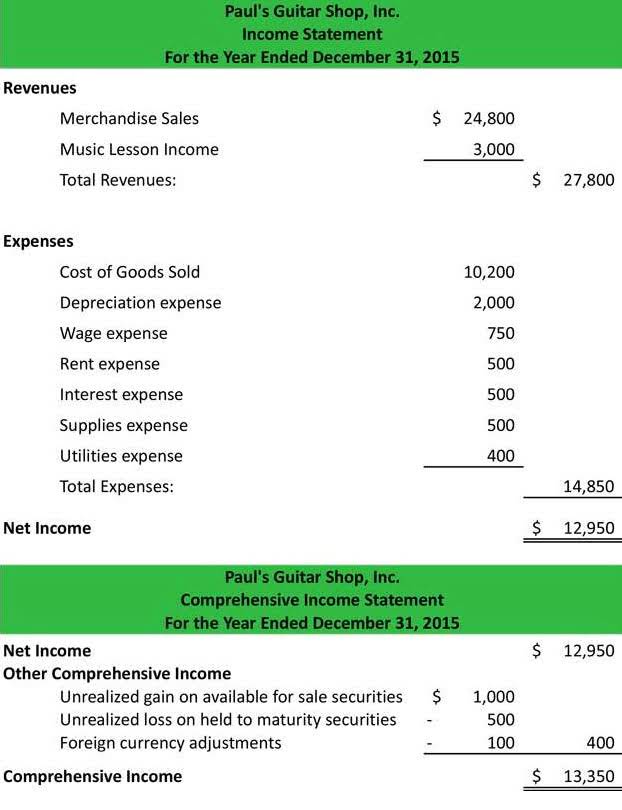
Now that the revenue account is closed, next we close the expense accounts. You must close each account; you cannot just do an entry to “expenses”. If the balances in the expense accounts are debits, how do you bring the balances to zero? The debit to income summary should agree to total expenses on the Income Statement.
The balances in each of the temporary accounts would then be closed out in either capital account as applied for sole proprietorship business and retained earnings as applied for the corporation. The professionals should not be confused with the income statement, and income summary account as both of the concepts rely on the reports of income and losses earned and incurred by the business. The income statement generally comprises permanent accounts and displays the business’s income earned and expenses incurred by the business.
Income Summary Account
Help the management prepare the income summary for the financial year ending. If you have only done journal entries and adjusting journal entries, the answer is no. Let’s look at the trial balance we used in the Creating Financial Statements post. Transferring it to a balance sheet gives more meaningful output to stakeholders, investors, and management. Therefore, learning about income summaries and other accounting tools in business is imperative.

The final funding decisions are made by the National Taxpayer Advocate. The costs of preparing and applying are the responsibility of each applicant. Applications may be released in response to Freedom of Information Act requests after any necessary redactions are made. Therefore, applicants must not include any individual taxpayer information.
What kind of account is income summary?
Non-operating revenue comes from ancillary sources such as interest income from capital held in a bank or income from rental of business property. A comparison of the line items indicates that Walmart did not spend anything on R&D and had higher SG&A and total operating expenses than Microsoft. The first section, titled Revenue, indicates that Microsoft’s gross (annual) profit, or gross margin, for the fiscal year ending June 30, 2021, was $115.86 billion. It was arrived at by deducting the cost of revenue ($52.23 billion) from the total revenue ($168.09 billion) realized by the technology giant during this fiscal year. Just over 30% of Microsoft’s total sales went toward costs for revenue generation, while a similar figure for Walmart in its fiscal year 2021 was about 75% ($429 billion/$572.75 billion).

Learning how to read and understand an income statement can enable you to make more informed decisions about a company, whether it’s your own, your employer, or a potential investment. Because of this, horizontal analysis is important to investors and analysts. By conducting a horizontal analysis, you can tell what’s been driving an organization’s financial performance over the years and spot trends and growth patterns, line item by line item. Ultimately, horizontal analysis is used to identify trends over time—comparisons from Q1 to Q2, for example—instead of revealing how individual line items relate to others. The T-account summary for Printing Plus after closing entries are journalized is presented in Figure 5.7.
Step 3: Complete the Income Summary Account
He has written for goldprice.org, shareguides.co.uk and upskilled.com.au. Way holds a Master of Business Administration in finance from Central Michigan University and a Master of Accountancy from Golden Gate University in San Francisco. Let’s explore each entry in more detail using Printing Plus’s information from Analyzing and Recording Transactions and The Adjustment Process as our example.
- It spent various amounts listed for the given activities that total of $10,650.
- A business’s cost to continue operating and turning a profit is known as an expense.
- Even after recent stock price gains, Corebridge yields 3.2% on its dividend, with a double-digit free cash flow yield.
- This figure represents the earnings before interest and taxes (EBIT) for its core business activities and is again used later to derive the net income.
- Accountants create income statements using trial balances from any two points in time.
- Higher yielding sectors (real estate, utilities and consumer staples) trailed.
However, if the company also wanted to keep year-to-date information from month to month, a separate set of records could be kept as the company progresses through the remaining months in the year. For our purposes, assume that we are closing the books at the end of each month unless otherwise noted. Earnings per share are computed by dividing the net income figure by the number of weighted average shares outstanding. With 7.55 billion outstanding shares for Microsoft, its 2021 EPS came to $8.12 per share ($61.27 billion ÷ 7.55 billion). With Walmart having 2.79 billion outstanding shares that fiscal year, its EPS came to $4.90 per share ($13.67 billion ÷ 2.79 billion). After discounting for any nonrecurring events, it’s possible to arrive at the value of net income applicable to common shares.
Having a zero balance in these accounts is important so a company can compare performance across periods, particularly with income. It also helps the company keep thorough records of account balances affecting retained earnings. Revenue, expense, and dividend accounts affect retained earnings and are closed so they can accumulate new balances in the next period, which is an application of the time period assumption. This final income summary balance is then transferred to the retained earnings (for corporations) or capital accounts (for partnerships) at the end of the period after the income statement is prepared.
We see from the adjusted trial balance that our revenue account has a credit balance. To make the balance zero, debit the revenue account and credit the Income Summary account. Thus, accumulating revenue and spending totals before the resulting profit or loss is passed through to the retained earnings account. It can, however, provide a useful audit trail by demonstrating how these aggregate amounts were carried through to retained earnings. If the income summary account has a net credit balance i.e. when the sum of the credit side is greater than the sum of the debit side, the company has a net income for the period. Conversely, if the income summary account has a net debit balance i.e. when the sum of the debit side is greater than the sum of the credit side, it represents a net loss.